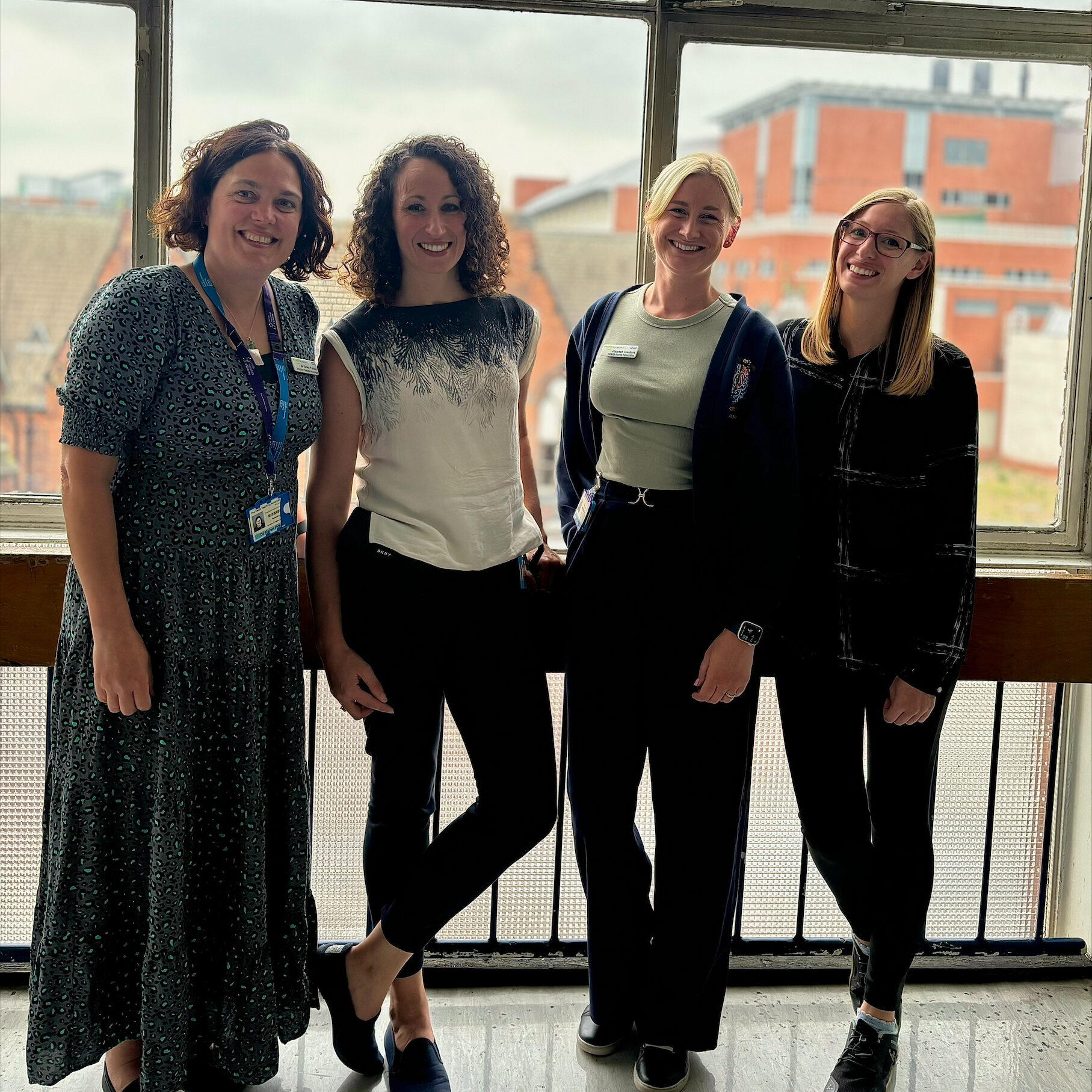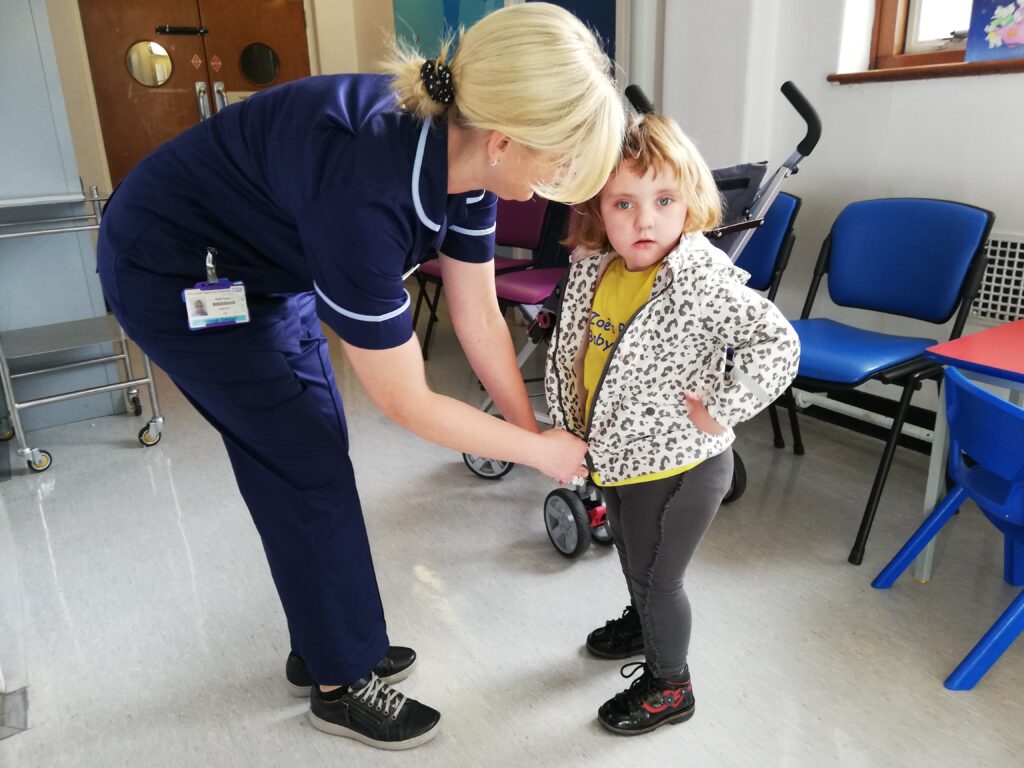On this page
What is an Inherited White Matter Disorder?
Inherited white matter disorders (IWMDs) – also known as leukodystrophies – are genetic disorders that primarily affect the white matter of the nervous system (the brain, spinal cord and nerves). This results in neurological problems such as issues with mobility/movement, speech, feeding, vision, hearing and cognitive skills. Many, but not all, IWMDs are progressive, meaning that difficulties get worse with time. For some disorders this may result in a limited or reduced life span.
IWMDs are rare – even the more ‘common’ disorders are very rare diseases affecting 1 every 15 to 20,000 people. In some of the rarest cases there may only be one family affected in the whole world. How someone is affected depends upon the cause of the white matter disease – there are many different IWMDs. They can affect males and females and any ethnicity.
What is the IWMD service?
The Inherited White Matter Disorders (IWMD) Diagnostic and Management Service is a formally commissioned highly specialised service. There are 4 centres across England, 1 for adults and 3 for children.
We have partnered with colleagues at Royal Manchester Children’s Hospital to provide a high-quality service with lots of experience. Referrals are accepted from tertiary neurology, metabolic or clinical genetics services, secondary care services, or other specialised services. Referrals are accepted where there is suspected or confirmed rare IWMD and the patient meets the inclusion criteria outlined in the national specification.
The aim of the service is to provide advice and guidance to local hospitals in the diagnosis and management of children with suspect or a confirmed IWMD. In the majority of cases, the patient will attend local services for tests and scans. In some cases, a patient will be supported to attend a clinic at either Manchester or Leeds for review by a specialist team. On-going support is available from our IWMD nurse specialist for both families and local teams.
The specialist team includes consultants in neurology, metabolic medicine, clinical genetics, neuroradiology, as well as a neurology nurse and neuropsychologist. Each have experience with diagnosing and managing patients with IWMDs in a large number of cases.
How are IWMDs diagnosed?
Though sometimes doctors might be suspicious that a patient may have an IWMD based on history or examination, most of the time it is when a patient has an MRI scan with abnormal white matter that an IWMD is considered. If this happens it is important that an experienced team used to looking after patients with white matter disorders review the scans – as not all changes are due to an IWMD.
Less commonly abnormalities in a gene known to cause an IWMD is found on genetic testing carried out for a different reason – it is again important that the doctors who ordered the test consider whether this is relevant and felt to be the cause of all the patients’ symptoms. If there is any doubt, advice from an expert team should be sought.
Meet the Leeds team

Dr Lydia Green – Consultant Paediatric Neurologist
Hannah Geldart – IWMD Nurse Specialist
Jade Belton – IWMD Coordinator
Dr Karen Pysden – Consultant Paediatric Neurologist
Dr Dan Warren – Consultant Neuroradiologist
Dr Helen Cliffe – Consultant Neuroradiologist
Dr Emma Hobson – Consultant Clinical Geneticist
Lucie Nash – Clinical Scientist
Referrals
Professionals may refer by email to leedsth-tr.north-iwmd@nhs.net Our referral proforma is attached to the automatic reply.
Parents, families and carers can ask their doctors to refer and can email our IWMD coordinator for further information at: jade-lauren.belton@nhs.net

Further support
We are fortunate to work alongside Alex TLC (The Leukodystrophy Charity) who have a mission to:
- Provide support for those living with leukodystrophy, and their families/carers
- Raise awareness of leukodystrophy
- Improve best practice in prevention, diagnosis & treatment
- Support research initiatives